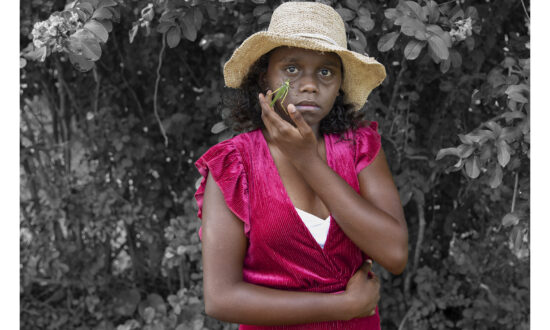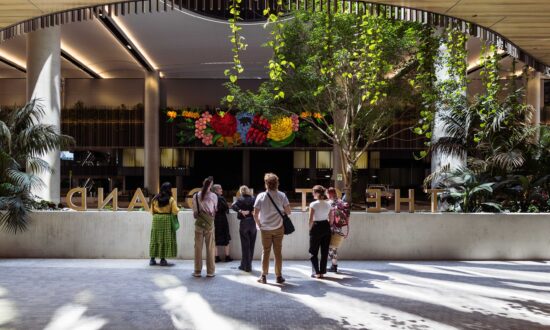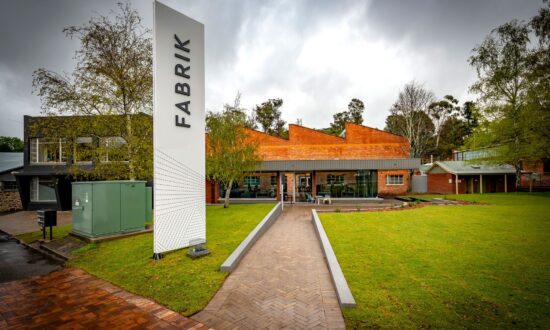Arriving in Adelaide in 1995 after completing his New York Fulbright Scholarship, Angus Trumble took up his role as associate curator of European art, and then curator of European art until 2001. Admired for his scholarship and wit, he is fondly remembered for his warm friendship and a particular ability to overshare vivid personal stories of minor misdemeanours and family mishaps.
Once met, Angus was never forgotten. He lit up a room and the world came alive through his lens. I recall his many curious interests, including English peerages, pugs and people. Of the latter, he was an acute observer – nothing escaped his keen eye. Cyclists, family groups, pickpockets and patients in medical waiting rooms were all grist for the mill.

Angus Trumble: Dapper. Benevolent. Generous.
Despite his penetrating insights into humanity, he held on lightly and never took art or life too seriously. He made life into an art.
At AGSA, Angus curated and wrote the accompanying catalogue for exhibitions that included Bohemian London: Camden Town and Bloomsbury Paintings (1997); Vive la France! Hidden treasures of French art (1824–1945) from Adelaide collections (with Sarah Thomas) (1998); and the touring show Love & Death: Art in the Age of Queen Victoria (2001–02). One of his most-loved acquisitions is Albert Moore’s languorous A workbasket, 1879. It is a treasure of British Aestheticism.
Much of the manuscript for Angus’s acclaimed The History of the Smile (2004) was researched and written in Adelaide, and had been inspired by an invitation to address a dental convention in this city on the topic of the smile in art.
At AGSA, Angus is best remembered for his animated and cheekily risqué lunchtime talks, around which developed a fandom. His greatest gift was his facility with the written word. While in Adelaide, he made significant contributions to serious national and international art journals, simultaneously penning amusing letters to the local newspaper editor. He was a great travel correspondent, and his postcards and private emails to his AGSA curatorial colleagues were savoured.
Given that he often preferred the experience of monastery accommodation when overseas, communication with AGSA in Adelaide became comically challenging. Angus was also prone to misplacing personal items. This absent-mindedness may explain the endearing detail of woven name labels hand-stitched onto the inside neckline of his Argyle jumpers. The labels were only visible when in casual mode he displayed a charming habit of characteristically tying his jumpers around his waist.

Among many other things, Angus was a great travel correspondent. Photo: Sarah Thomas
Angus threw memorable rooftop parties from Adelaide’s (now demolished) mid-century Elizabeth House, on North Terrace. Naturally, everyone was welcome, as long as, on arrival, you rang the bell and could catch the entry door key delivered in a yellow sock, dropped by the host from an open window in his eighth-floor penthouse.
Angus now seems like a figure from a time long passed. Dapper. Benevolent. Generous. Whip-smart and kind-hearted, with the rare ability of coating his sharp intellect with modesty and self-effacing humour. Most importantly, Angus had the gift of making those within his orbit feel valued. This made him a rare gem indeed.
His star shone bright in Adelaide. The city was good to him and he was, and always will be. good to Adelaide.
We miss him.
Angus Trumble died on October 8, at the age of 58. His other roles in the arts included director of the National Portrait Gallery in Canberra, senior curator of paintings and sculpture at the Yale Center for British Art in the US, and senior research fellow at the National Museum of Australia.
Tracey Lock is curator of Australian Paintings & Sculpture at the Art Gallery of South Australia.
Support local arts journalism
Your support will help us continue the important work of InReview in publishing free professional journalism that celebrates, interrogates and amplifies arts and culture in South Australia.
Donate Here




